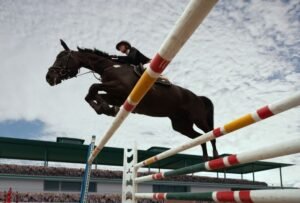The Supreme Court refused to interfere with the decision directing the Sports Department of the Union Territory of Chandigarh (respondent no. 3 herein) to issue a sports gradation certificate to a student despite him having studied in Mohali, Punjab.[1]
In this case, the student respondent sought admission to a five-year law course at Punjab University, under the 5% sports quota. He applied for a sports gradation certificate from the Department of Sports, which denied the request.
This denial was owing to a provision in the policy dated May 5, 2003; the respondent was not a regular student at the schools or colleges recognised by the Chandigarh administration and situated in the Union Territory of Chandigarh.
The Punjab and Haryana High Court noted that the policy in question pertained to reservations for admissions under the sports category in schools and colleges recognised by the Chandigarh administration and situated within the Union Territory of Chandigarh. This was contrary to the instant case, where the respondent sought admission to Punjab University, which was not under the control of the Chandigarh administration.
The argument made by the Union Territory of Chandigarh, was held to be based on a misinterpretation of the policy letter. It was pointed out that the policy did not prevent the Sports Department from issuing a sports gradation certificate to athletes who represented Chandigarh teams but studied in other states. The respondent, who studied in Punjab but represented the Chandigarh Rifle Association at state and national levels, was held eligible for such a certificate. The Court added that the policy recognised shooting as a sport and allowed for the issuance of sports gradation certificates to athletes representing Chandigarh teams.
Remarking that it would be unjust, unfair, arbitrary and irrational to deny the sports gradation certificate to the respondent, the Punjab and Haryana High Court directed its issuance within three days.
This decision came to be challenged before the Supreme Court, where the appellant argued that upholding the impugned order as valid would frustrate the policy’s objective. Dismissing the special leave petition, the Supreme Court refused to interfere with the decision of the Punjab and Haryana High Court. However, the Apex Court made it clear that the impugned order could not be treated as a precedent in any other matter.
[1] Department of Sports v. Manraj Singh Chatna and Ors.[SLP(C) No.14073/2024]



